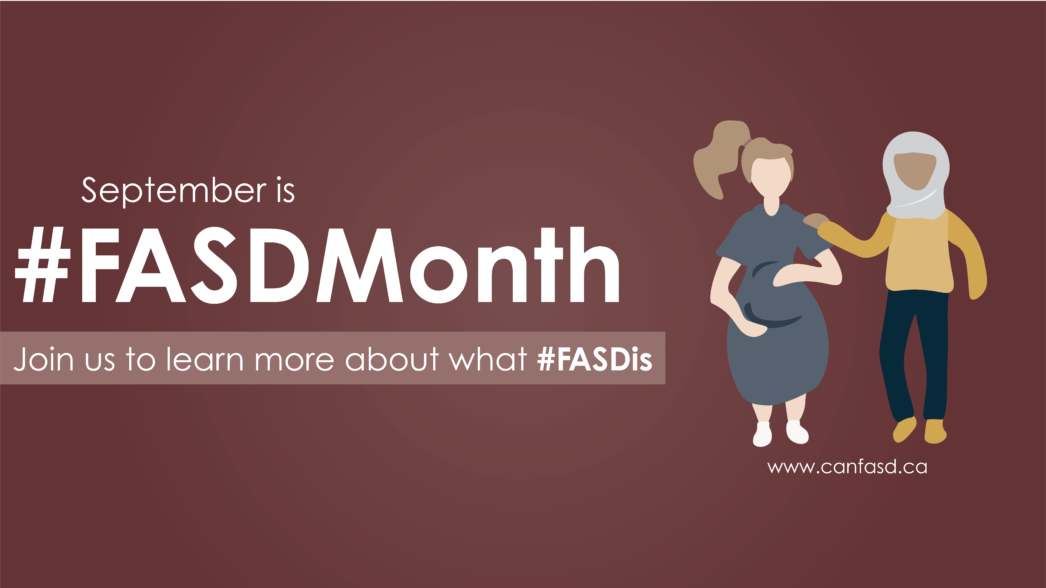September is FASD Awareness Month. Every day in September we are spreading the word about fetal alcohol spectrum disorder (FASD). We will continue to share information about FASD throughout September and beyond in the hopes of bringing all Canadians together to address this disability.
The leading developmental disability in Canada
FASD is a developmental disability that impacts the brain and body of people who were exposed to alcohol while in the womb. Each person with FASD has strengths and challenges and will need specialized supports to help them succeed.
FASD impacts 4% of Canadians, which translates to roughly 1.5 million people or 1 in 25 Canadians. To put that in context, FASD impacts more people than autism, cerebral palsy, and Down syndrome combined.
A focus on the strengths
Individuals with FASD can experience challenges with learning, memory, speech, attention, behaviour, and sensory processing. However, people with FASD also share many strengths. They are often known as being caring, friendly, outgoing, hardworking, generous, and creative.
It is important to recognize both strengths and challenges in order to find ways to effectively support people with FASD. However, we often put too much emphasis on the challenges or difficulties. Doing so can be dangerous because it contributes to misconceptions and stereotypes about individuals with FASD.
Stigma, misinformation, and stereotypes
FASD is a relatively new diagnosis and we are still learning and discovering new information about this disability every day. As a result, there is a lot of misinformation and stereotypes circulating about FASD, alcohol, and pregnancy.
Stigma, stereotypes, and misinformation are very problematic. They create additional barriers that the FASD community has to overcome in order to access supports and services.
For example, stereotypes about people with FASD being lazy, violent, and having difficult behaviours may lead to the incorrect belief that people with FASD will be involved with crime and substance use. This is not true. The overrepresentation of people with FASD in the justice system is a result of a lack of supports and services. In reality, people with FASD can live meaningful lives outside of the justice system when given the right supports.
Overcoming stigma
One way that we can overcome stigma is by continuing to share our knowledge and stories about FASD. Including the voices of people with lived experience is a very important part of this process.
The purpose of our #FASDis campaign is to challenge the misinformation and stigma surrounding FASD, alcohol, and pregnancy, and broaden our understanding of what FASD truly is. Throughout September, in honour of FASD Awareness Month, we’re sharing information about what FASD is.
You can help by:
- Learning more about FASD
Whether you’re an expert in fetal alcohol spectrum disorder or just you’ve just heard the term “FASD” for the first time, there’s always more to learn.
Here’s some great resources for you to learn from:
FASD Frequently Asked Questions
Foundations in FASD Online Course
2. Sharing what you learn with your community
When you’re talking about FASD, be sure to use the right language. Strengths-based, non-judgemental, and person-centered language helps to reduce the stigma surrounding FASD, alcohol, and pregnancy.
Here’s some resources to help you talk about FASD:
3. Donating to CanFASD or your local FASD organization
If you are unable to make a financial contribution, donate your time and attention to this cause. Volunteer with local organizations and attend FASD month events in your community.
Get involved at www.fasdmonth.ca.

